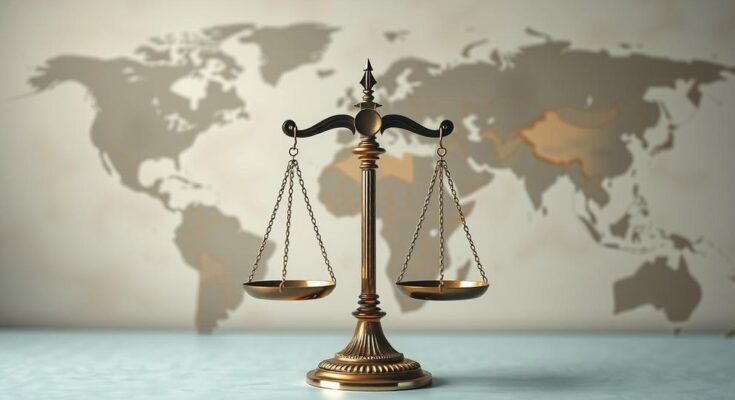On 6 February 2025, President Donald Trump unveiled an Executive Order imposing sanctions on the International Criminal Court (ICC) and its Chief Prosecutor Karim Khan. This move aims to obstruct the ICC’s independent mission to investigate grave international crimes, presenting a dire threat to the Court and its personnel. UN experts condemned the order as an “attack on global rule of law,” echoing concerns about its implications for international justice, especially regarding accountability in Palestine.
The Executive Order allows sanctions against anyone assisting the ICC in investigating or prosecuting without consent from a person’s country. This includes freezing assets in the US and banning entry for the sanctioned individuals and their families. Recognised as ‘protected persons,’ US nationals and military personnel, as well as citizens from certain allied countries, fall under this definition, which currently includes approximately 19 nations. Karim Khan stands as the initial sanctioned individual, but more could follow in time.
The ICC serves as a global judicial body for war crimes, crimes against humanity, and genocide, stepping in when national courts fail. Operative under the Rome Statute with 125 member states, the ICC routinely issues arrest warrants for individuals linked to atrocious acts, including high officials from Israel and Russia. Established as a last resort for victims without recourse, the ICC faces being compromised by the imposed sanctions that limit its ability to enforce justice.
The sanctions from the Trump administration serve as a significant push against the Court, particularly aimed at the cases involving Israeli officials. This escalates the historical US opposition to the ICC’s authority, especially concerning investigations of officials from non-member countries like the US in Afghanistan and Palestine.
For victims seeking justice in Israel and Palestinian territories, these sanctions are catastrophic as they thwart the ICC’s efforts in pursuing investigations against key figures such as Netanyahu. The sanctions specifically aim to deter the Court from achieving impartial justice, increasing the isolation of the ICC from vital international cooperation and hindering its ability to bring offenders to trial.
Concern arises that these sanctions will not only affect ongoing cases in the Middle East but also damage all ICC investigations worldwide. Such a chilling effect could deter cooperation from countries and individuals, raising barriers to securing justice in cases relating to Ukraine and Uganda, among others. Despite Biden’s stance supporting the ICC, the sanctions continue to pose a significant obstacle to pursuing accountability for crimes against humanity.
To protect the ICC and international justice, supporting countries must move beyond mere declarations of support. Practical measures are essential, including creating national laws to safeguard people from US sanctions and fostering collaboration with the Court. This defence against trampling actions from the US can only thrive through coordinated efforts from nations committed to justice.
On 6 February 2025, President Trump sanctioned the ICC, undermining its ability to function independently. The Executive Order targets anyone assisting the ICC in investigations without consent, posing risks to justice in Israel and Palestine while impacting other global inquiries. The sanctions symbolize escalating US opposition to the ICC’s authority, urging supportive nations to actively defend international justice through practical actions.
The sanctions imposed by the Trump administration represent a severe threat to the International Criminal Court and its foundational role in addressing serious crimes. These measures undermine justice efforts not only in the Middle East but worldwide, risking impunity for those who commit grave violations. It is imperative that supportive countries take concrete actions to bolster the ICC, ensuring its independent functioning and long-term viability as a mechanism for global justice.
Original Source: www.amnesty.org.au



